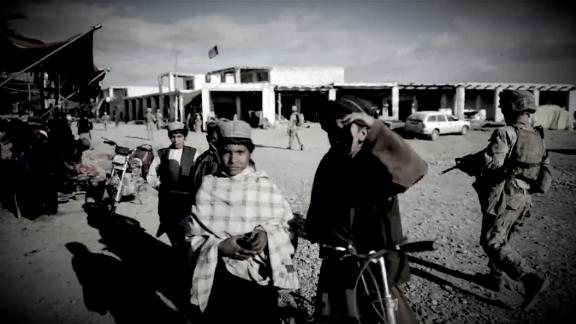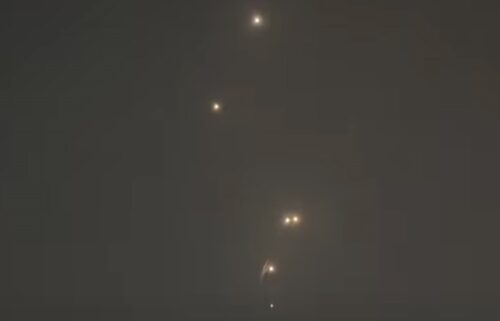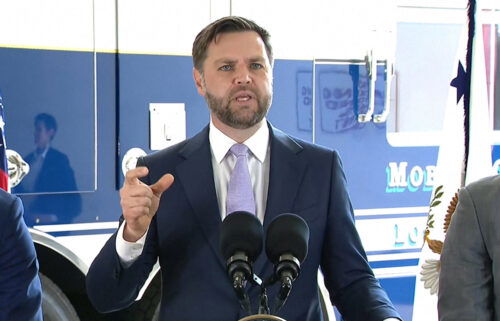‘No one can dare ask why’

Kabul, Afghanistan (CNN) — Women are banned from leaving their homes without a male companion and nobody dares ask about schooling for girls living here.
Taxation, that’s sometimes fair and often on the rich but compulsory, can be prey to rival taxmen and lead to beatings and imprisonment for non-payment.
Justice is dispensed in mobile courts with adulterers jailed or killed and some reoffending thieves hanged in public. Bread, clothing and even the occasional smartphone are gifts for fighters.
This is 2021, in a Taliban stronghold: Musa Qala, a town in Helmand province that dozens of Americans, British and Afghan soldiers died fighting for over nearly two decades.
It is now entirely the type of backward, Islamist society the Taliban want. It’s a crude form of order after more than 30 years of chaos, locals say.
In interviews with six male residents of the town, CNN sought to establish what a society controlled by the Taliban is like for its citizens, given the growing nationwide sway of the militant group that ruled the country in the 1990s.
On Wednesday, US President Joe Biden is expected to announce plans to withdraw US troops from Afghanistan by the twentieth anniversary of the September 11 terrorist attacks.
Negotiations between the US and the Taliban are ongoing, with the Afghan government often left on the sidelines, and likely to pick up the pieces of any peace deal.
The fate of Musa Qala carries great symbolism for the NATO presence in Afghanistan. It is where some of the fiercest fighting occurred ten years ago, before US-led troops departed Helmand and Afghan troops left the area by 2016.
Britain lost at least 23 soldiers skirmishing around its verdant riverbed, before US marines swept in with greater firepower in 2010. At least four US soldiers died in the town, along with many Afghan security forces. The lack of rights for women, and complete absorption of society by the Taliban, will raise questions about the ultimate purpose of the sacrifice of NATO nations.
While Kabul and the center of most main cities remain mostly under government control, vast swathes of rural Afghanistan are ruled by the fractious and varied units of the Taliban. For more than five years now in Musa Qala, they have imposed their rules despite still being in regular conflict with Afghan security forces further south in Helmand province.
“At the end of the day the Taliban have the power,” said one resident. “It is not really possible to go against their will.”
“They are everywhere,” a second resident added. “They have power and the court. They tell us what our Zakat, or tax, is.”
“They use it for expenses and guns. They oppress those who do not pay.”
Residents speaking to CNN did so anonymously, for fear of reprisals from the Taliban.
The men broadly described Taliban rule as an improvement on the past decade, marred by a deeply backward treatment of women, and moments of brutality. The men said women are not allowed to work unless they are medical staff.
“When they [women] go out, they need to dress according to Sharia. So, for them it is more important to take care of their homes than working outside,” a third resident said.
The second man we interviewed said women had been prosecuted by the courts for leaving their homes.
“Women are not allowed to go out; you can’t find many women going out of their houses. There is no school for girls in Musa Qala.”
The fourth man said: “No one can dare to ask why. Since we can’t talk about it, people have accepted the reality.”
The residents spoke of a confident militant group able to move freely on motorbikes, with an established walkie-talkie warning system for Coalition attacks. They said US airstrikes had recently resumed, after a hiatus because of the ongoing peace negotiations between the US and the Taliban, expedited by the Trump administration.
The Taliban “now are more cautious than ever before to avoid being found gathered in big numbers”, the fourth man said.
They described a system of governance with designated elders in charge, and a regular court system, where Taliban established an “Otaq,” or Room, where grievances could be heard or settled, and offenders tried and punished. The Room in Musa Qala was convened every Thursday, and often changed venue, the men said, because of the threat of airstrikes.
“Many people in different villages who have been taken to the Taliban Otaq,” said the third man, “locked up there for a night or two, or have been beaten up.”
While some described the court system as efficient, the second man said it was prey to corruption and favored the wealthy. “If you are poor and weak, your chance of winning is very slim,” he said.
Punishments have included death for theft, the first man said, citing the hanging of three thieves four years ago.
“They were repeatedly arrested a few times for robbery, but they did not stop,” he said, adding that they were hung on the road between Musa Qala and Sangin “on the electricity poles on a bridge, for the people to see.” He added that a woman had been jailed for adultery five years ago and her fate was unknown. The second resident said a jail had been made from a deserted house on the outskirts of town.
Accounts of taxation in Musa Qala varied. Some said it focused on the rich. The fifth resident said the Taliban forced residents to buy fighters clothes in the market during Ramadan, and also collected a tax on opium production at harvest. Others described a looser system in which shopkeepers, farmers and businessmen were approached for a contribution. Locals were also encouraged to give bread and clothing to the Taliban’s militants.
The third man said competing groups among the Taliban often tried to levy their own taxes.
“The better way would be to give it to a single authorized official, but every group tries to put it in their own pocket,” he said.
Recruitment to the Taliban was described as voluntary, with little training, and relatively popular owing to the lack of local work and school indoctrination.
“The Taliban stress a lot the importance of Jihad in the madrasas,” or schools, the third man said.
The sixth man added: “Schoolboys are the most vulnerable ones, indoctrinated quickly and recruited. I hope we see a day when there is only one government and a single rule of law in the country. That is when we can have peace.”
The economic challenges for the Taliban, if the fighting subsides nationwide, were also apparent.
Analysts believe the group is keen to find a political accommodation with the central Afghan government to maintain a degree of international legitimacy and ensure that development aid can still flow into the country, keeping it afloat.
The fourth man said that in Musa Qala there were no development projects under way like when the central government had control.
“They [the Taliban] are not able to create jobs,” he said.
One moment of modernization stood out in the six interviews: The return of smartphones, known as “big phones,” or “WhatsApp phones” by locals.
Aggressively banned by the Taliban for years, because of their use by the Coalition to track Taliban fighters for airstrikes, they have since gently been allowed to return.
The Musa Qala residents said the Taliban, businessmen and richer locals appreciated the better communications. Some terms and conditions still applied, they said.
“Taliban would stop anyone who would use the phone to shoot video,” said the first man. “They have instructed the shops who run WhatsApp services not to register anyone who looks suspicious.”



